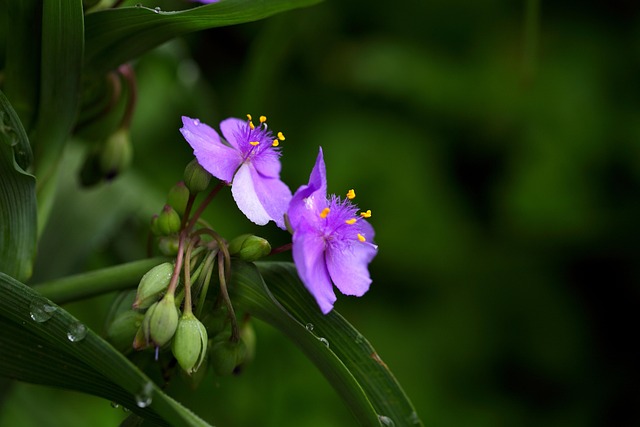Fermentation: The Unexpected Beauty Ally
The beauty industry is abuzz with a new trend that's as old as civilization itself: fermentation. This ancient process, long associated with preserving food and creating libations, is now making waves in skincare and wellness circles. Far from being just another fleeting fad, fermented ingredients are revolutionizing beauty routines with their potent, bioavailable nutrients and unique properties. As consumers increasingly seek natural, effective solutions for their skincare needs, fermentation is emerging as a powerful ally in the quest for radiant, healthy skin. This unexpected convergence of traditional wisdom and cutting-edge science is redefining what we expect from our beauty products, offering a fresh perspective on self-care that goes beyond surface-level treatments.

Research has shown that fermented ingredients often have a lower molecular weight compared to their non-fermented counterparts. This smaller size allows them to penetrate deeper into the skin, delivering nutrients and active compounds more effectively. Additionally, the fermentation process can increase the concentration of certain beneficial compounds, such as antioxidants, which help protect the skin from environmental stressors and signs of aging.
Historical Roots and Modern Revival
The use of fermented ingredients in beauty rituals dates back centuries in many cultures, particularly in East Asia. Korean beauty traditions, for instance, have long incorporated fermented ingredients like rice water and soybean paste in skincare routines. These practices were based on empirical observations of improved skin texture and overall health benefits.
In recent years, there has been a resurgence of interest in these traditional methods, driven by a combination of scientific validation and consumer demand for natural, sustainable beauty solutions. Modern research has begun to uncover the mechanisms behind the efficacy of fermented ingredients, leading to a new wave of products that blend ancient wisdom with contemporary science.
Popular Fermented Ingredients in Skincare
Several fermented ingredients have gained prominence in the beauty industry, each offering unique benefits:
-
Fermented Rice Water: Rich in vitamins, minerals, and amino acids, it’s known for its brightening and anti-aging properties.
-
Galactomyces Ferment Filtrate: A byproduct of sake fermentation, it’s praised for its ability to improve skin texture and tone.
-
Lactobacillus Ferment: This probiotic ingredient helps balance the skin’s microbiome and strengthen its barrier function.
-
Fermented Green Tea: Offers enhanced antioxidant properties compared to regular green tea extract.
-
Fermented Ginseng: Known for its anti-aging and skin-firming effects.
These ingredients are being incorporated into various products, from serums and essences to moisturizers and masks, catering to a wide range of skin concerns and types.
Benefits Beyond Skin Deep
The advantages of fermented beauty products extend beyond just skincare. Many users report improvements in overall skin health, including better hydration, reduced inflammation, and enhanced resilience against environmental stressors. The probiotic nature of some fermented ingredients can also help balance the skin’s microbiome, potentially alleviating conditions like acne and eczema.
Moreover, the fermentation process can make products more stable and increase their shelf life naturally, reducing the need for artificial preservatives. This aligns with the growing consumer demand for clean, eco-friendly beauty options.
Challenges and Considerations
While the potential of fermented beauty is exciting, it’s not without challenges. The efficacy of fermented ingredients can vary depending on the specific fermentation process, the strains of microorganisms used, and the base ingredients. This variability can make it difficult to standardize products and ensure consistent results.
Additionally, as with any skincare ingredient, individual reactions can vary. Some people may experience sensitivity or allergic reactions to certain fermented ingredients. It’s always advisable to patch test new products and introduce them gradually into a skincare routine.
There’s also a need for more comprehensive, long-term studies to fully understand the effects of fermented ingredients on different skin types and conditions. As the field evolves, we can expect to see more targeted research addressing these gaps in knowledge.
The Future of Fermented Beauty
As consumer interest in natural, effective skincare solutions continues to grow, the fermented beauty trend is likely to expand and evolve. We can anticipate seeing more innovative products that combine fermented ingredients with other proven actives, offering multi-functional benefits.
The sustainability aspect of fermentation is also likely to gain more attention. Fermentation can be a low-energy, eco-friendly process, aligning with the increasing demand for sustainable beauty options. This could lead to the development of more locally-sourced, small-batch fermented beauty products.
Furthermore, as research in this area progresses, we may see more personalized approaches to fermented skincare. The ability to tailor fermented ingredients to individual skin microbiomes could open up new possibilities for highly effective, customized skincare solutions.
In conclusion, the rise of fermented beauty represents a fascinating intersection of tradition and innovation in the skincare world. By harnessing the power of natural fermentation processes, the beauty industry is unlocking new potentials for effective, sustainable skincare. As this trend continues to evolve, it promises to offer exciting new ways for consumers to achieve healthy, radiant skin, bridging the gap between nature’s wisdom and scientific advancement in the pursuit of beauty and wellness.




